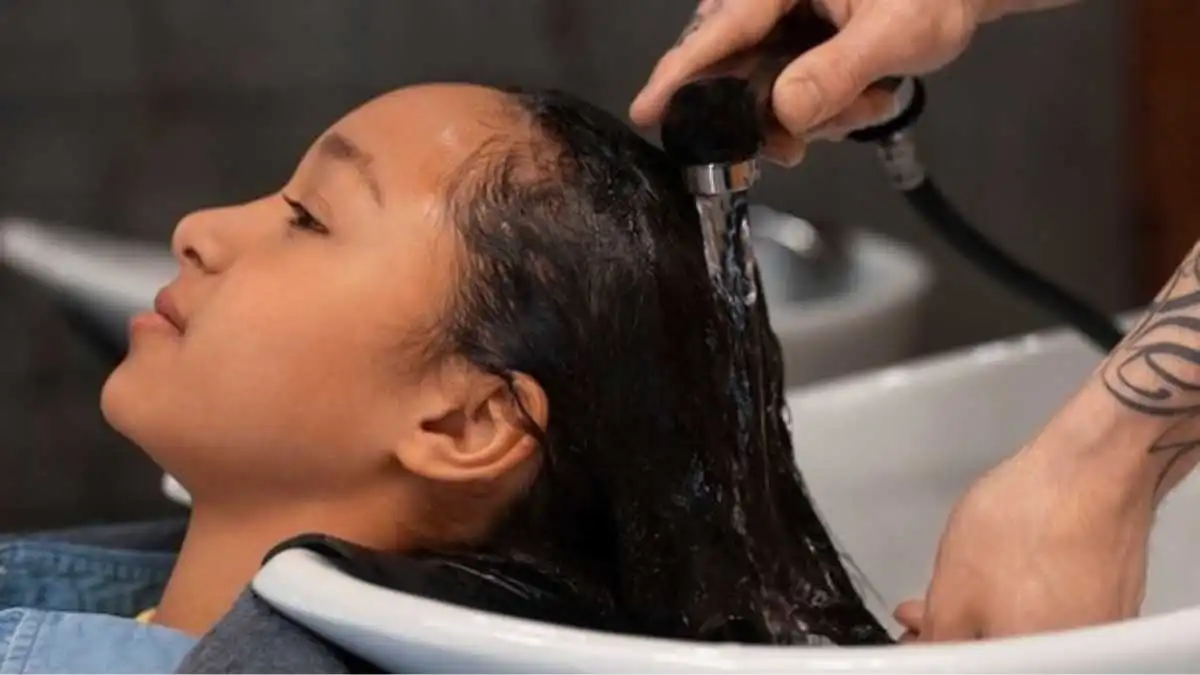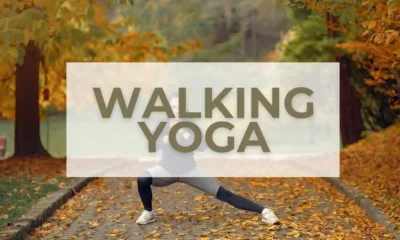HEALTH AND FITNESS
Can Chemical Relaxers Cause Hair Loss? How to Prevent Breakage with Relaxed Hair Extensions

Introduction
Chemical relaxers have long been used to straighten textured and curly hair, transforming tight coils into smooth, manageable strands. However, the convenience of chemically processed locks sometimes comes at a price. Many individuals with naturally curly or kinky manes report thinning, shedding, or even severe breakage after repeated use of relaxers. If you’ve ever asked yourself, “Will my hair grow back after relaxer damage?” or “What should I do if my hair is falling out after a relaxer?”—you’re not alone. This blog post dives into the effects of chemical relaxers, how to care for your scalp, and why choosing the right type of extensions could make all the difference.
Table of Contents
The Effects of Chemical Relaxers on Textured Hair
Textured hair, especially coily and kinky types, is naturally delicate and requires extra care to thrive. These strands do best when kept moisturized, handled gently, and protected from excessive heat or harsh treatments. When chemical relaxers are introduced, they alter the protein structure of the hair to create a straighter texture—but this often comes at the cost of elasticity and strength. A smart alternative for maintaining style without further damage is using Human Hair Relaxed Straight Extensions, which offer the sleek look of relaxed tresses while supporting healthier natural hair growth underneath.
One of the most effective ways to prevent further breakage is by transitioning into protective styles. For those growing out chemically processed manes, these extensions closely mimic the appearance of relaxed hair without adding additional chemical stress. This makes it easier to maintain a polished, low-maintenance look while prioritizing the health of your natural roots.
By minimizing the need for daily heat styling, these extensions help reduce mechanical damage. Instead of constantly manipulating your mane, you can let your strands rest and recover, giving your roots the time they need to strengthen and thrive.
Preventing Hair Loss and Managing Breakage
Understanding how to care for textured or chemically treated hair is vital for preventing long-term damage. Relaxed hair is more porous and susceptible to moisture loss, making it vulnerable to split ends and breakage if not maintained properly.
Here are a few protective measures to keep in mind:
- Avoid overlapping relaxer applications – applying relaxer to already processed sections weakens strands.
- Deep condition regularly – use protein-rich masks to rebuild structure and retain moisture.
- Limit chemical exposure – stretch the time between relaxer treatments to reduce stress on the scalp.
- Sleep on satin or silk – cotton pillowcases create friction that can lead to shedding.
If your mane is already showing signs of stress, a great solution is adopting styles that require minimal manipulation. Relaxed Hair Tape Extensions are ideal for those experiencing thinning or fragile roots. These extensions are gentle, low-tension, and blend effortlessly with relaxed textures. Since they’re lightweight, they place less strain on weakened follicles while offering volume and a polished appearance.
Unlike traditional sew-ins or glue-ins, tape extensions can be placed strategically, making them suitable for individuals dealing with patchy areas or a sensitive scalp. With proper care, they can support recovery by allowing your natural tresses to rest.
Restoring Scalp Health After Chemical Damage
After prolonged use of relaxers, some individuals notice sensitivity, scabbing, or even bald spots, especially if a chemical burn occurred during application. But all hope is not lost—your scalp can heal with time, care, and the right regimen.
To help restore your scalp:
- Use scalp-soothing oils like peppermint or tea tree oil to reduce inflammation and stimulate circulation.
- Avoid tight hairstyles or anything that pulls on the roots.
- Stick to sulfate-free shampoos that won’t strip the scalp’s natural oils.
- Give your scalp a break from heat tools and dyes while focusing on nourishment.
In cases of hair loss from the root, regrowth is possible, especially if follicles aren’t permanently scarred. Early intervention with gentle care increases your chances of full recovery. Massaging your scalp daily, taking hair growth supplements (like biotin), and consulting a trichologist can further support your hair journey.
FAQs
Can relaxer permanently damage hair?
Yes, if overused or misapplied, relaxers can lead to permanent structural damage. They weaken the protein bonds in hair, making it prone to breakage and shedding.
Will hair grow back after a relaxer burn?
In many cases, yes—especially if the follicle isn’t scarred. But recovery depends on the severity of the burn and how quickly treatment begins.
Does your hair go back to normal after a relaxer?
Not entirely. Relaxers chemically alter your strand’s structure. New growth will return to its natural texture, but treated areas will remain straightened until trimmed.
What to do if hair is falling out after relaxing?
Stop using chemicals, avoid heat styling, deep condition weekly, and opt for low-tension protective styles like tape-in extensions.
Does hair grow back after falling out from roots?
Yes, but only if the hair follicle hasn’t been damaged or scarred. Maintaining a healthy scalp environment is crucial.
How to keep hair healthy after relaxer?
Use moisturizing products, protect ends, reduce heat, and maintain a clean but nourished scalp. Avoid frequent touch-ups and always follow up with deep conditioning treatments.
Do hair extensions damage the scalp?
Not all extensions are harmful. Lightweight and well-installed options like tape-ins or clip-ins are safe if applied properly and maintained well.
How can I repair my scalp after relaxer damage?
Focus on hydration, stimulate circulation with massage, avoid harsh products, and consult a professional if burns or bald spots persist.
Final Thoughts
While chemical relaxers offer convenience, they can also compromise the health of textured tresses when not managed with care. But with awareness, patience, and protective styling choices like Human Hair Relaxed Straight Extensions and Relaxed Hair Tape Extensions, you can give your mane the best chance to recover, regrow, and radiate. Remember—healthy hair starts at the root, and the right approach today can restore your crown tomorrow.
-

 GENERAL7 months ago
GENERAL7 months agoChristofle – For Those Who Dream of Family Heirloom Silver
-

 SPORTS9 months ago
SPORTS9 months agoDiscover the World of Football with Streameast: Watch Your Favorite Leagues and Tournaments
-

 GENERAL1 month ago
GENERAL1 month agoUncovering the World of кинокрадко: The Dark Side of Film Piracy
-

 GENERAL4 months ago
GENERAL4 months agoATFBooru: Anime, Gaming, and Subculture Imageboard


























